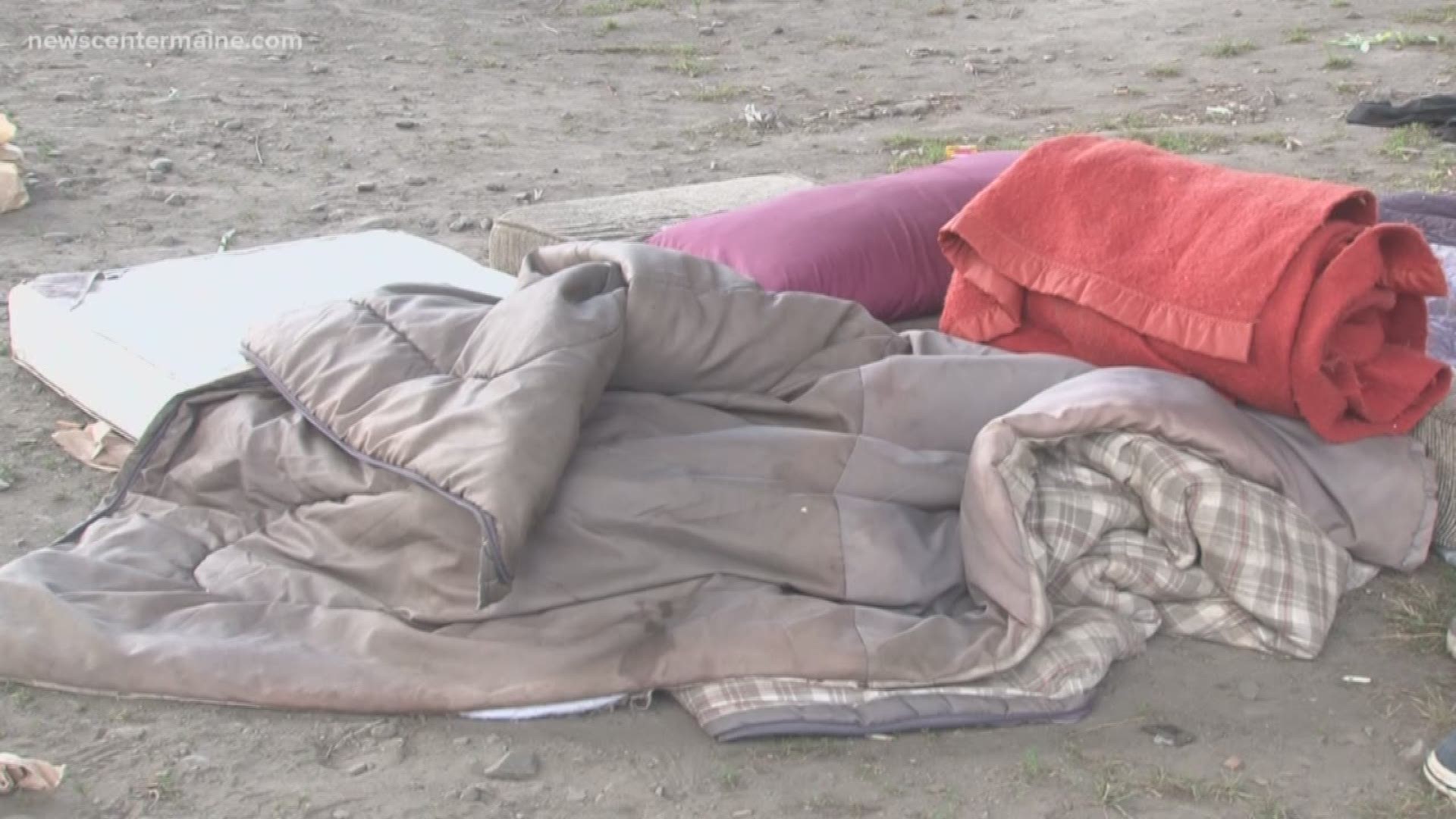BANGOR (NEWS CENTER Maine) -- It has been a couple of weeks since a large homeless encampment near the waterfront was cleared, of brush and trash, as well as the people who had been living there.
It was hoped that the move would encourage those people to make their way to the two homeless shelters in the city.
Many of them did not.
Todd Bray of Bangor still lives on the same patch of land, which is nearly unrecognizable from what it looked like late last month.
"We are, you know, not a bunch of bums and hobos and stuff," said Bray. "We're just trying to survive and find a place to live."
Bray and others in the homeless community were moved after recent violence forced police to shut down the encampment along the waterfront.
Sixty to seventy people once lived there. Now, some have set up camp down river.
"Its been more difficult," said Bray. "We've had to go further and further to find spots and we're not close enough to the river all the time to either get out of the heat and, you know, cool off or to, you know, bathe and stuff, so we have to find other alternative methods to shower and cool off."
Alternative methods, and, perhaps, alternative housing.
"Just by closing down the campsites is not going to force people into the shelters," said Boyd Kronholm, who has been the Executive Director of the Bangor Area Homeless Shelter for the past two years.
"Main Street shelter, I have to get up first thing in the morning, walk all the way down there, and then talk to somebody because I was kicked out of there one night because I drank beer and came in," said Bray, owning up to past mistakes and decisions in his life which led to him becoming homeless. "The Hope House is, you know, way too far for me to walk especially in this heat."
Kronholm believes the best way to reach people, like Bray, is with the outreach the shelter and other community organizations are already doing.
"We send people down to the waterfront or wherever they happen to be and just continue the conversations," said Kronholm. "We try to meet people where they're at and talk about, you know, 'why are you not ready to come into the shelter? Why are you not ready to start looking for housing? Why are you not ready to work on your sobriety?'"
"I've been homeless in the winter in this place and, you know, I've heard of a few people camping out all winter long and surviving, but that's not going to happen again," said Bray. "You put people in a situation like this and eventually somebody's going to get hurt [or] somebody's going to die because they're going to freeze to death."
Unless, according to Bray, Bangor and other cities and towns across Maine come up with more options for people like him.
Bray and Kronholm said a handful of folks from the original waterfront encampment made it to one of the two area shelters for a night or two. Then, most sought shelter elsewhere in smaller encampments around the city.

